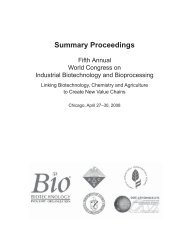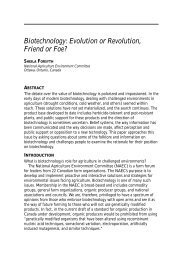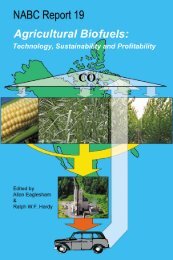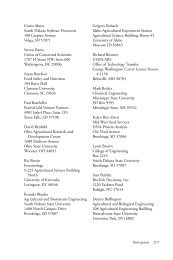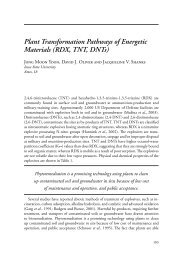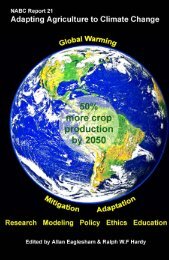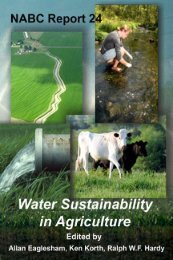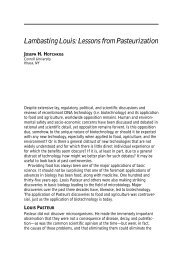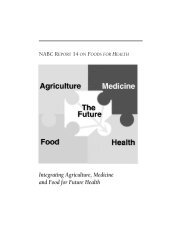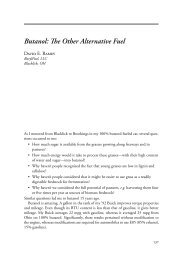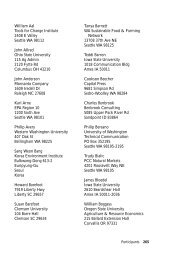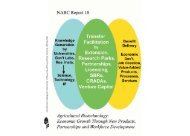Food Security - National Agricultural Biotechnology Council ...
Food Security - National Agricultural Biotechnology Council ...
Food Security - National Agricultural Biotechnology Council ...
- No tags were found...
You also want an ePaper? Increase the reach of your titles
YUMPU automatically turns print PDFs into web optimized ePapers that Google loves.
• <strong>Food</strong>-waste reduction. It is estimated that about a third of the food producedworldwide is wasted. In high-income countries, waste occurs at the consumerend, and in low-income countries at the production end due to crop failures andlack of infrastructure.Taking all of these recommendations together, great strides towards a comprehensivesolution can be made. Foley stated:The task is to feed the world while sustaining the planet. Failure is not an option.Civilization depends on solving this problem literally. We have to get it right andwe get only one try at it.Water is an issue that needs to be addressed at various geographical scales; however, itis widely recognized that changes/actions in water management and conservation needto start at the local level, with the understanding that it affects, in comparable measure,the regional and continental scales. Water is perhaps the most important natural resourceand agriculture uses most of the available fresh water. It is becoming scarce in someregions of the world and it must be managed and preserved if food production is to bedoubled sustainably.Minnesota is at the headwaters of three of the largest North American river basins,which are replenished largely from rain and snow. Minnesotans are conscious of theirwater heritage and of their responsibility to care for their state’s water resources and foreffects on users downstream. Three years ago (2008) Minnesotans added the Clean Water,Land and Legacy Amendment to the state constitution and part of a small increase inthe state’s sales tax goes to the Clean Water Fund to protect and enhance water resources.In her presentation, Looking Far into the Future: The Minnesota Water SustainabilityFramework, Deborah Swackhamer (University of Minnesota) described the Frameworkas providing…a long-range plan that frames major water sustainability issues and providesstrategies and recommendations for addressing them. It is not a specific spendingplan for the Minnesota Clean Water Fund, nor should it be limited by theavailability of Clean Water Funds; rather, it includes recommendations forinvestments that may come from sources beyond the Clean Water Fund (otherstate funds, private funds, etc.), as well as recommendations that require littleor no investment by the state.The Framework is not a set of strategies and recommendations that are applicable acrossthe globe because there are factors that affect different regions in different ways. However,it can serve as a model for other states in the Union and beyond.Terry Stone (Syngenta, Developed and Developing World Sustainability Perspectives)presented several examples of progress achieved in developing countries by application ofnew technologies and also of continued stagnation and poor efficiencies caused by lackof infrastructure, poor resources and restrictions to adoption of modern technologies dueto lack of information and low literacy. If the goal to double food production is to beachieved, then increases in agricultural productivity in both developing and developednations are essential.Ponce de León



